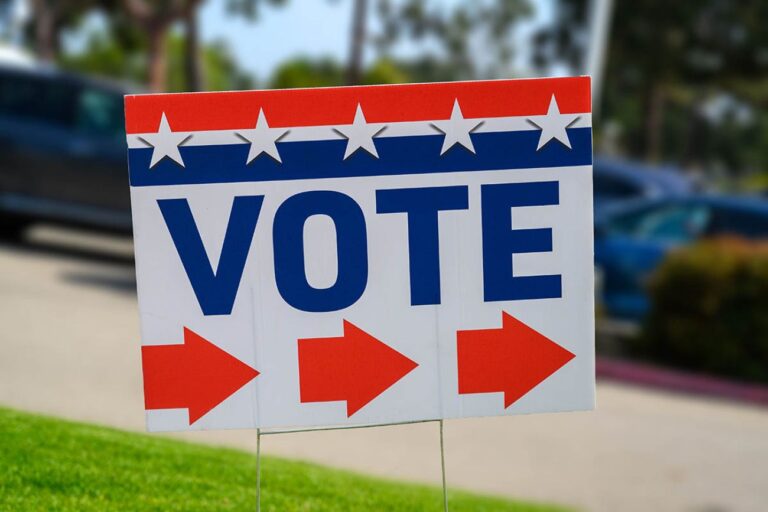
Perhaps you have heard this phrase during this election cycle. As we navigate the divided political climate, it is important to be mindful of Jesus’ omnipresence (cf. Ps 139:7). The enemy likes to sow division:such a phrase weakens our relationships and distracts us from our true mission as disciples. I confess to my own struggle with political discourse, and I have felt the pain it can cause. In this article, I’d like to explore the question: “What could it really mean to think like Jesus when engaging in political discourse?”
Sacred Scripture is the living Word of God, so it helps to begin there. All through Salvation History the Jews of the Old Testament and the Christians of the New Testament are invited by God to choose particular actions as a sure sign of their faith, hope, and love for the Lord. From the giving of the Law in Exodus to the prayers of the Psalms and the oracles of the Prophets, and from the humble birth of our Lord to the teachings of the Apostles, God implores his people to protect widows and orphans, welcome the stranger, and be mindful of the vulnerable in ways that seek to heal the sick, clothe the naked, feed the hungry, and bury the dead. God also promises blessings to those who love and serve Him through service to the vulnerable, and He lays out natural consequences to cultures who do not. God’s Word can be summed up by the prophet Micah: ”You have been told, O mortal, what is good, and what the Lord requires of you: Only to do justice and to love goodness, and to walk humbly with your God,” (Micah 6:8). Jesus, the Incarnate God, is the fulfillment of the Word through His obedience to the Father in all things.
In knowing what we are to do in living the Word, is there still something more that pertains to our political actions? Paul says, “…there is no authority except from God, and those that exist have been instituted by God,” (Rom 13:1). He is referring to God’s permissive will that allows for human freedom in temporal governance. Peter concurs, ”Submit yourselves to every ordinance of man for the Lord’s sake: whether it be to the king, as supreme; or unto governors,” (1 Pt 2:13-14). James helps us understand what faith in action looks like: “Religion that is pure and undefiled before God the Father is this: to visit orphans and widows in their affliction, and to keep oneself unstained from the world,” (Jas 1:27). Paul, Peter, and James were all taught by our Lord, and point us toward our higher calling: unity in our actions of service to our fellow man.
Our personal mission as Catholic Christians is the same before and after the election. It is to walk with the Lord in the power of the Holy Spirit, bearing the fruits of love, joy, peace, patience, kindness, generosity, faithfulness, gentleness, and self-control (cf. Gal 5:22-23). We do this in our families, our parish, our schools, and our community. This mission transcends the persons and policies of government. We are invited by the Church and Scripture to use our freedom well in our choices of leaders and our actions of service. Again, we are reminded by Paul, “For you were called to freedom… Only do not use your freedom as an opportunity for the flesh, but through love serve one another. For the whole law is fulfilled in one word: ‘You shall love your neighbor as yourself.’ But if you bite and devour one another, watch out that you are not consumed by one another,” (Gal 5:13-15). No political system, nor any political agenda, prohibits us from making a choice to love and to bear one another’s burdens. To think like Jesus is to understand that our mission is independent of politics. Jesus calls us to come together to serve, and thereby live in the joy of growing relationship with God and our fellow man.
Comments? Please email me, Susan Schudt at sschudtcomments@gmail.com.